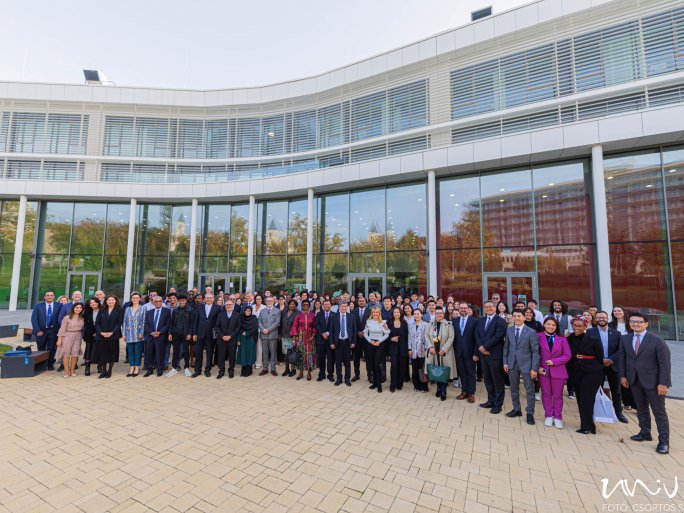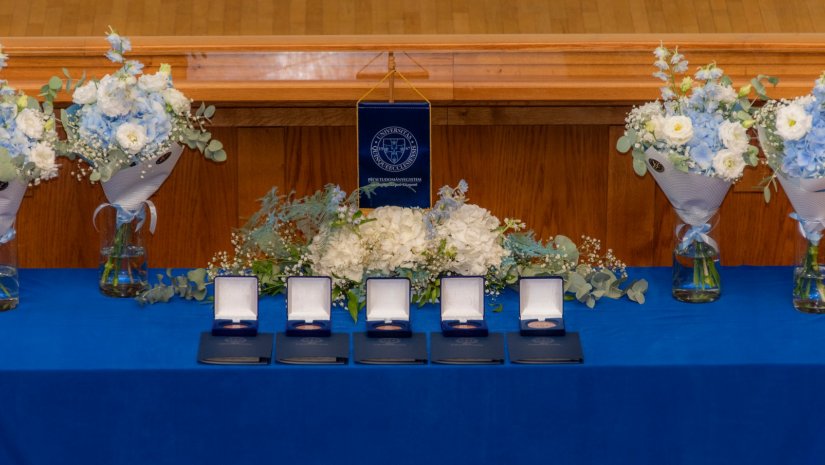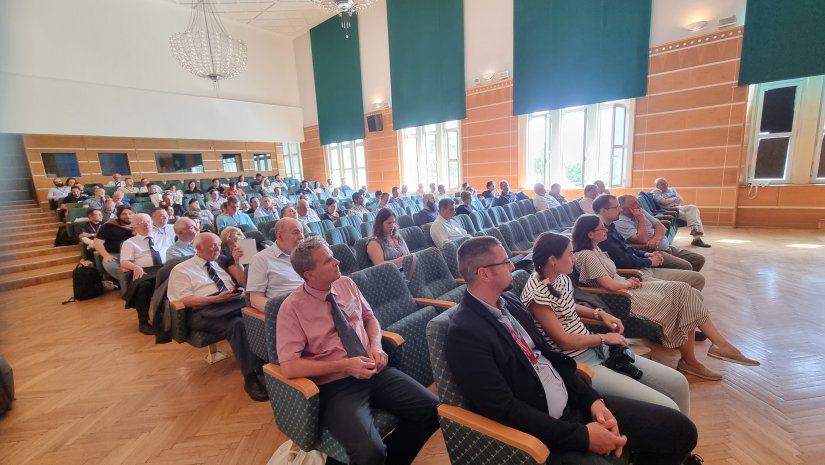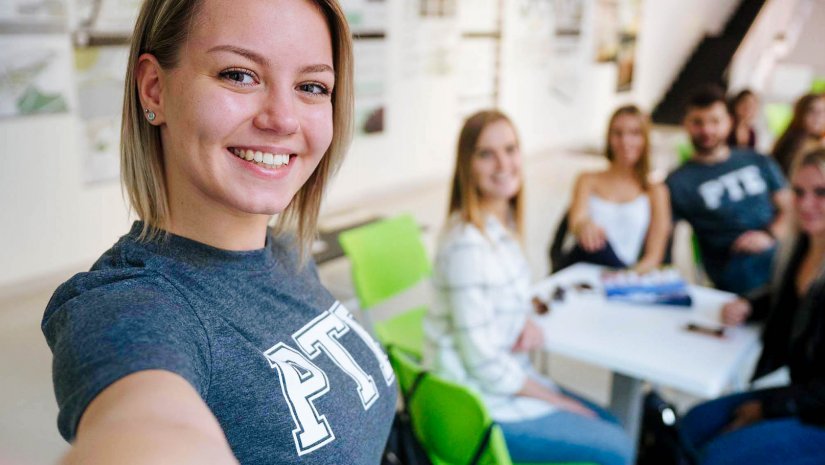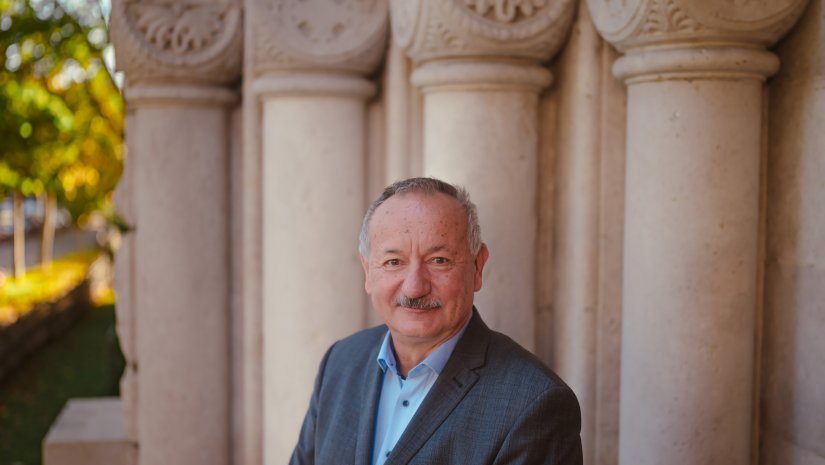On 20 October, the International Centre of the Rector's Cabinet, University of Pécs organized a special event: the Pécs Diplomats' Forum combined with the 10th-anniversary celebration of the Stipendium Hungaricum scholarship program. The event was held in the new theoretical block of the Medical School.
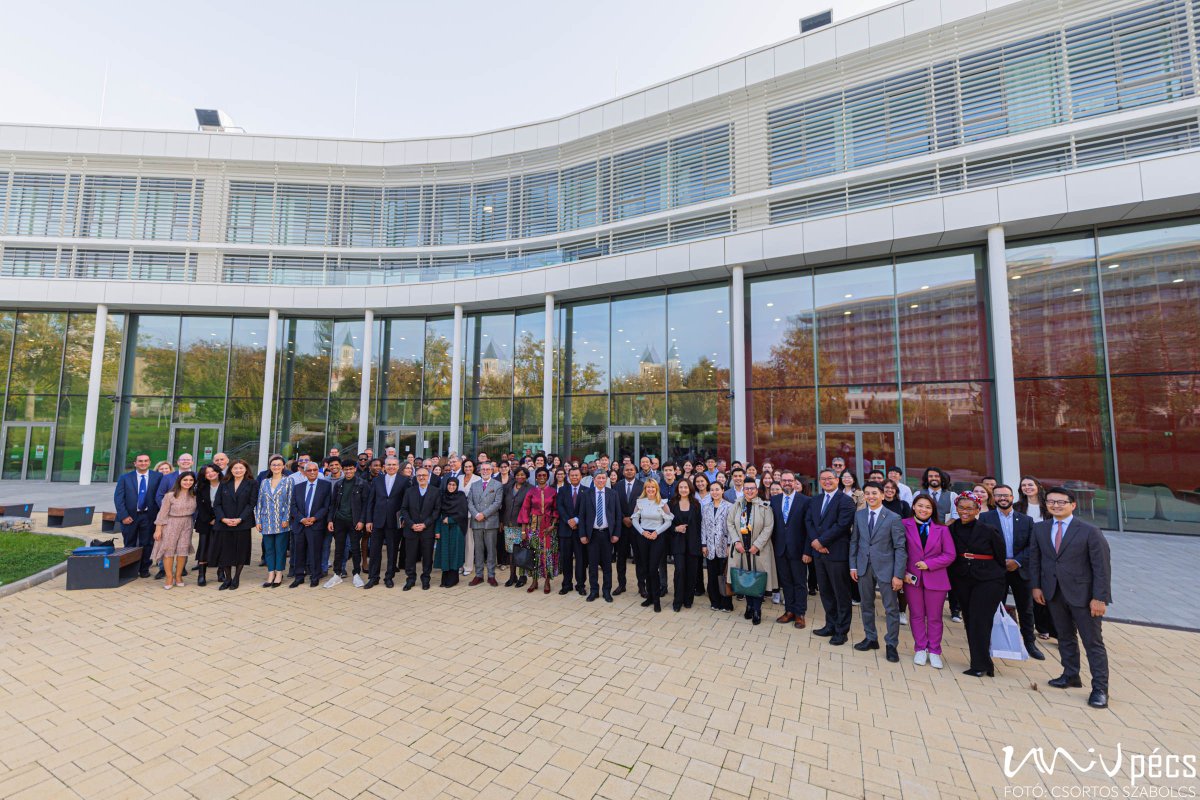
"The roots of foreign language education at the University of Pécs go back 30 years. At that time, we were the first in Hungary at the University of Medicine in Pécs to launch an English-language program. Thanks to the popularity of the Stipendium Hungaricum scholarship program, every faculty of the university has caught up, and I am proud to say that this year we are already welcoming students from 80 countries. Thanks to the presence of five thousand foreigners, the University of Pécs has truly become international! I hope that its developments - and here I mean both the improvement of infrastructure and the quality/preparation of teachers - will be successful," said Rector Attila Miseta. Addressing the international students and ambassadors, he added:
"We are counting on you in the future!"
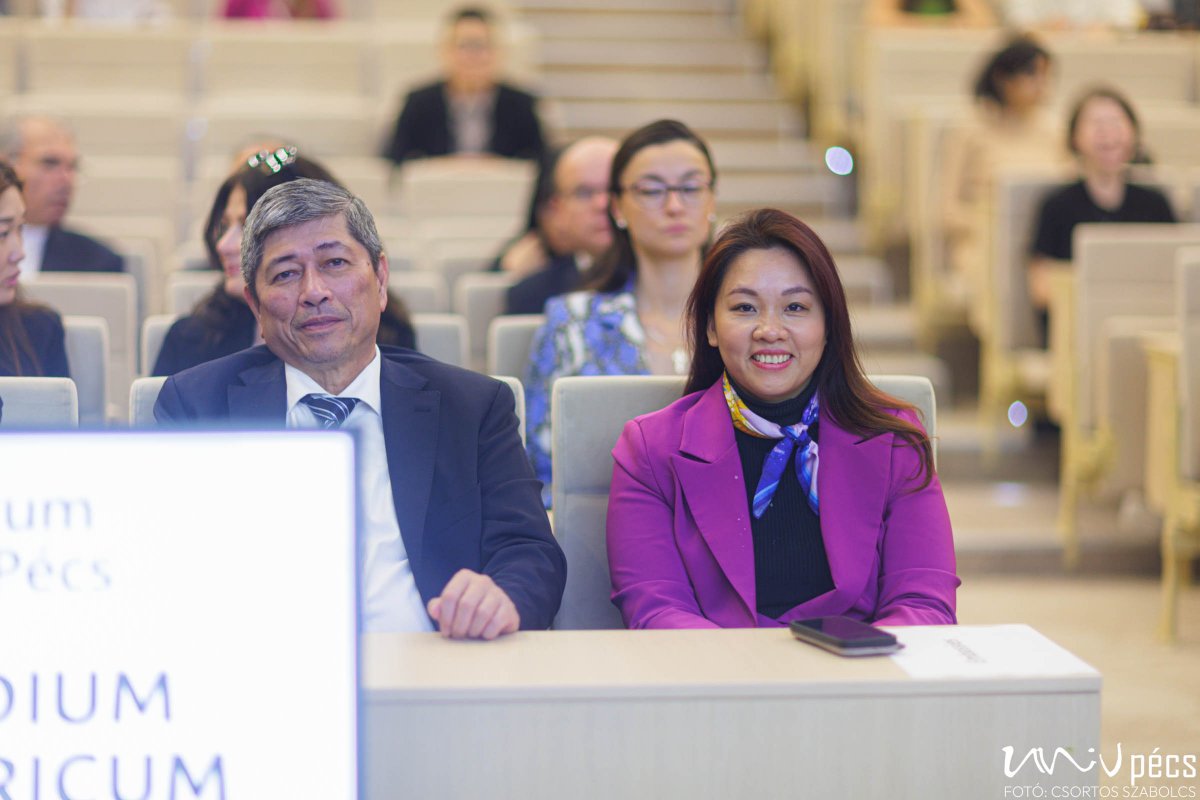
Dr. Orsolya Pacsay-Tomassich, Secretary of State and President of the Hungarian Diplomatic Academy, said in her presentation that the program, which debuted 10 years ago with only three partners (Vietnam, Lebanon, and Jordan), has since grown to
work with 91 countries on five continents. The program now spends HUF 38 billion per year and provides nearly 5,000 scholarships for students to study in Hungary, instead of the previous HUF 60 million per year and 68 scholarships.

Dr. Orsolya Pacsay-Tomassich also explained that the scholarship contributes significantly to the costs of tuition, living expenses, and health care. "The Stipendium Hungaricum program does not only have an impact on the students admitted to the scholarship system, but the number of students from partner countries who participate in self-financed education has also increased. In 2013, a total of 23,000 international students studied in Hungary - their number today reaches 42,000!" said Dr. Orsolya Pacsay-Tomassich. She also pointed out that, due to the Russian-Ukrainian war, the Students at Risk sub-program was created within the Stipendium Hungaricum in March 2022, which aimed to help Ukrainian and international students studying there, admitting 604 new scholarship holders to the system. The president also spoke separately about graduates: the alumni system has been built very consciously from the beginning, and its members reached 10,000 this year. Members receive career counseling, exclusive online services are available to them, and they are involved in coaching programs that serve their needs with thematic webinars.
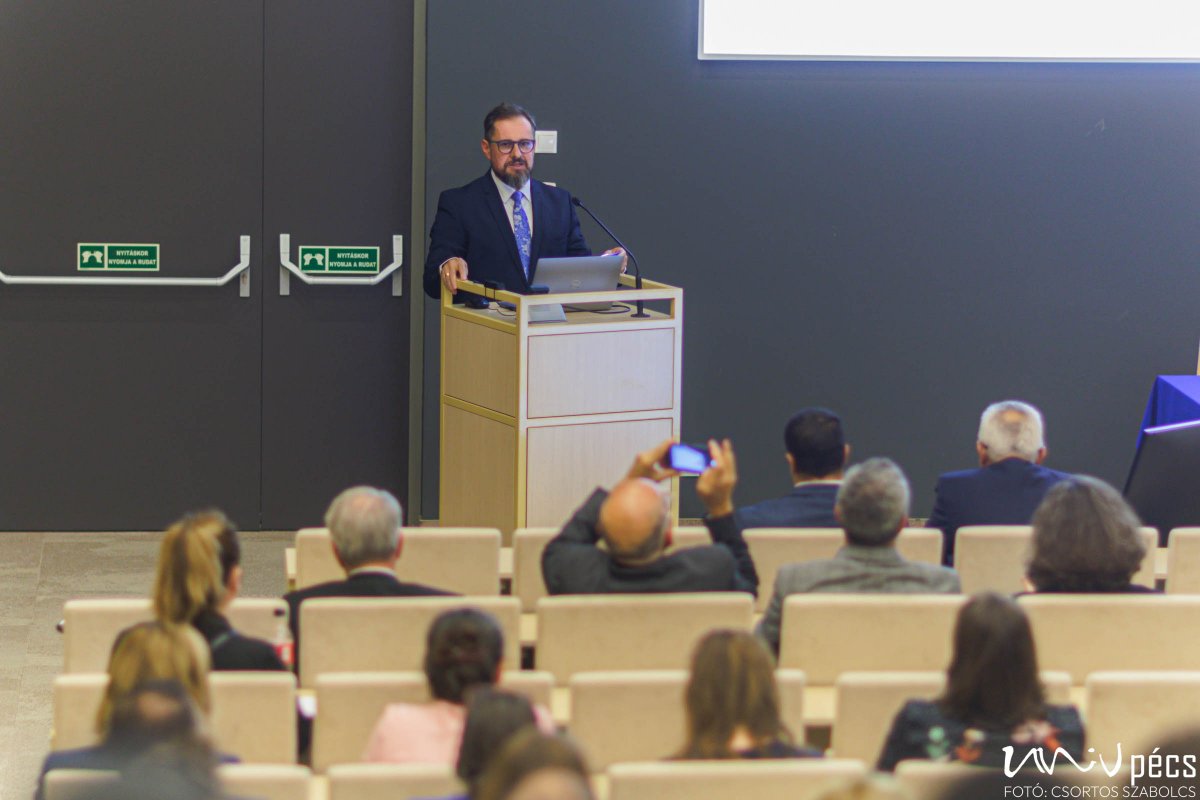
Dr. István Tarrósy, the head of the International Centre of the University of Pécs, reported on the Pécs branch of the Stipendium Hungaricum program. The statistics are impressive:
every fourth international student at the University of Pécs is a Stipendium recipient, even though the number of international students has reached five thousand.
Most of them are enrolled in Medical School and come from Jordan. Dr. István Tarrósy proudly listed the services that support internationalization: among others, the Legal Aid, Student Counseling, Cultural Sensitivity training, Dream Apply!, Summer School, Travelling Ambassadors, and International Seasons programs. He also pointed out that, apart from the PTE, there is no other university that has published not one, but two cookbooks showcasing the diverse gastronomic culture of its international students.
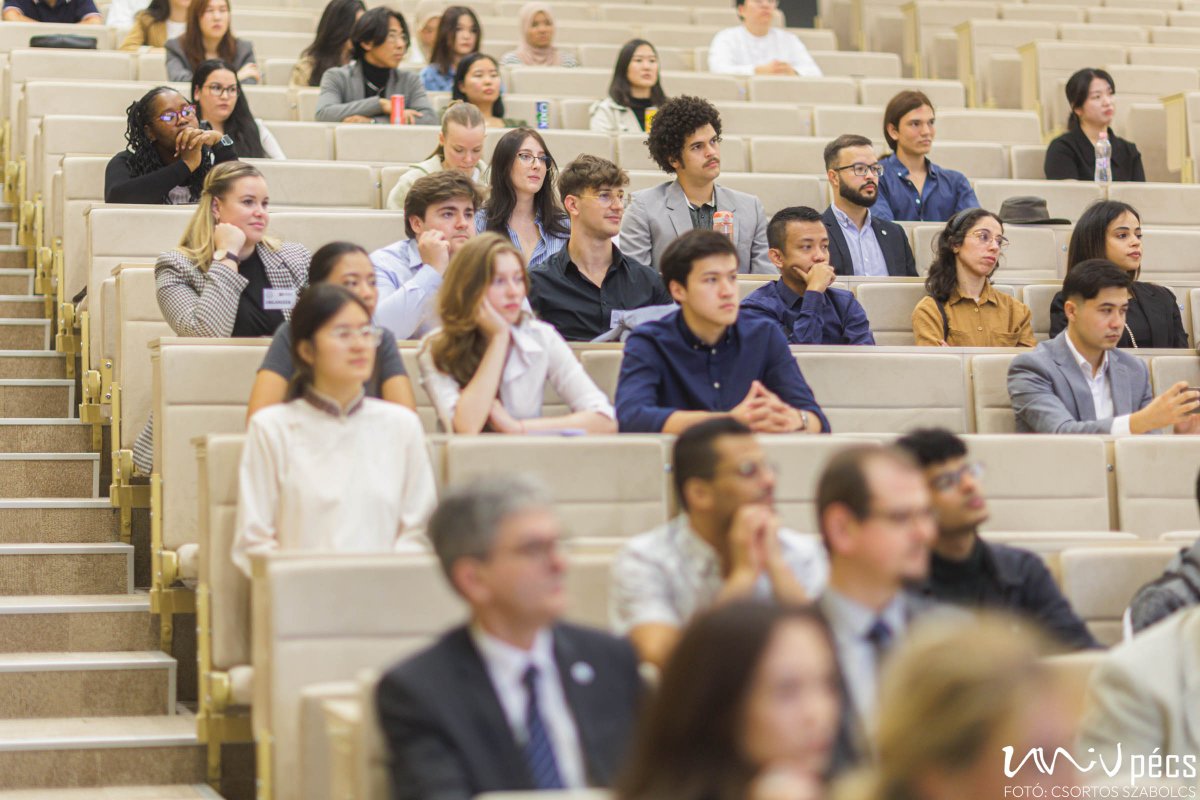
On the occasion of the scholarship’s anniversary celebration,
several speakers mentioned how heartwarming those life stories are that the scholarship holders occasionally tell them.
There was an opportunity to experience this at the event: South African, Chilean, Colombian, Kazakh and Yemeni students spoke up and thanked one by one for the opportunity that the Stipendium Hungaricum offered them.
In addition to the many thanks, three striking themes emerged. The majority of Stipendium students - especially if they had previous experience with other Hungarian higher education institutions - are impressed by the kindness and helpfulness of the citizens of the University of Pécs. "I failed the neuroanatomy exam, but there was a way for me to try again in the summer without losing my scholarship. I studied hard, but I received a lot of encouragement and help with my studies, and I am very happy that I was able to pass the exam for the second time. There really is no instructor or administrator at this university who does not answer my questions and is not extremely helpful," said a Nigerian girl. "I study at the Faculty of Music and Visual Arts, but I had the opportunity to get to know the Faculty of Business and Economics through one of my instructors. I feel that the openness I experience here is amazing," said a painting student from Kazakhstan.

The other direction was the manifestation of the emerging advocacy needs of international students. It is clear, that the growing number generates the need to be able to articulate the various special needs in a more organized form. The forum revealed that the Filipinos studying in Hungary recently established their first national association, a body
specifically representing the needs of international students
has recently been established at the Faculty of Health Sciences in cooperation with the student government, and there is also a similar demand at the Faculty of Music and Visual Arts and at the Faculty of Humanities and Social Sciences. Both the leadership of the International Centre and the ambassadors enthusiastically encouraged these initiatives.

The third direction is the increasingly strong bond between the embassies, students, and the PTE. For example, the Nigerian ambassador said that he is aware of the amount of effort involved in dealing with international students, and he considers it respectable that the PTE not only has a high level of academic education, but also pays attention to the proper balance between education and community life.
At the end of the event, students could also talk to the ambassadors of their home countries in a relaxed manner.

The day was closed by the well-deserved Stipendium Gala in the Zsolnay Quarter.
by Éva Harka


